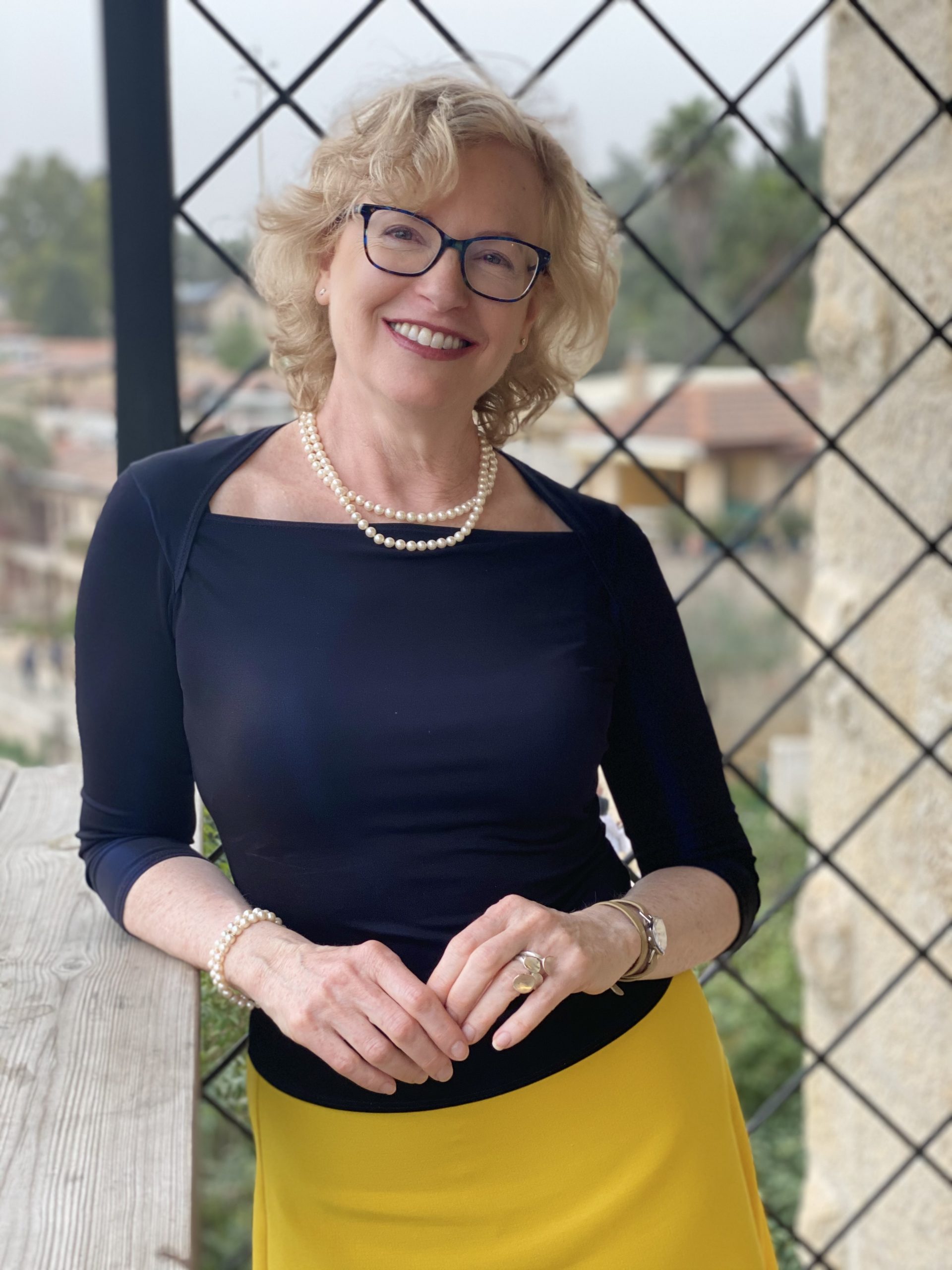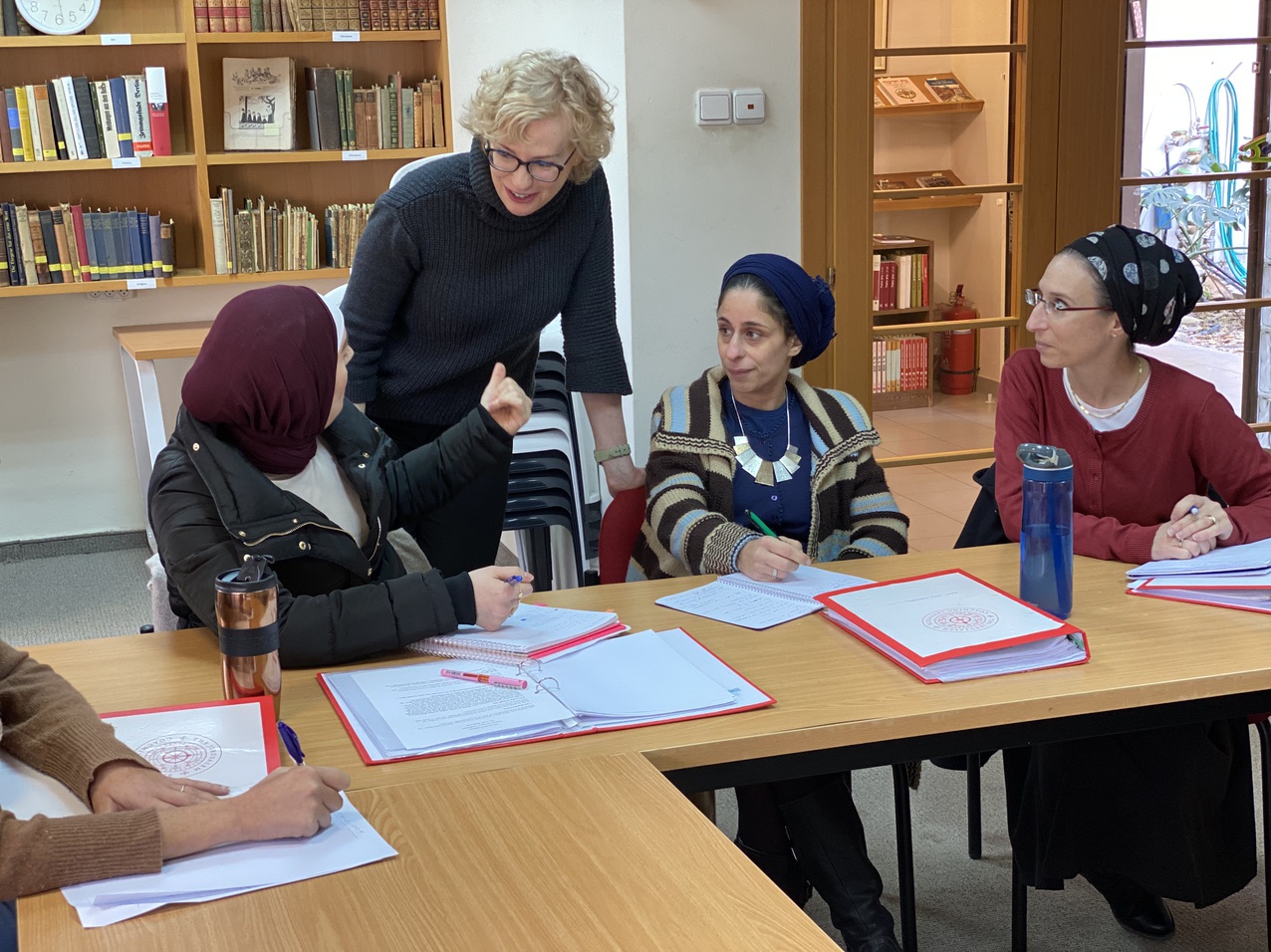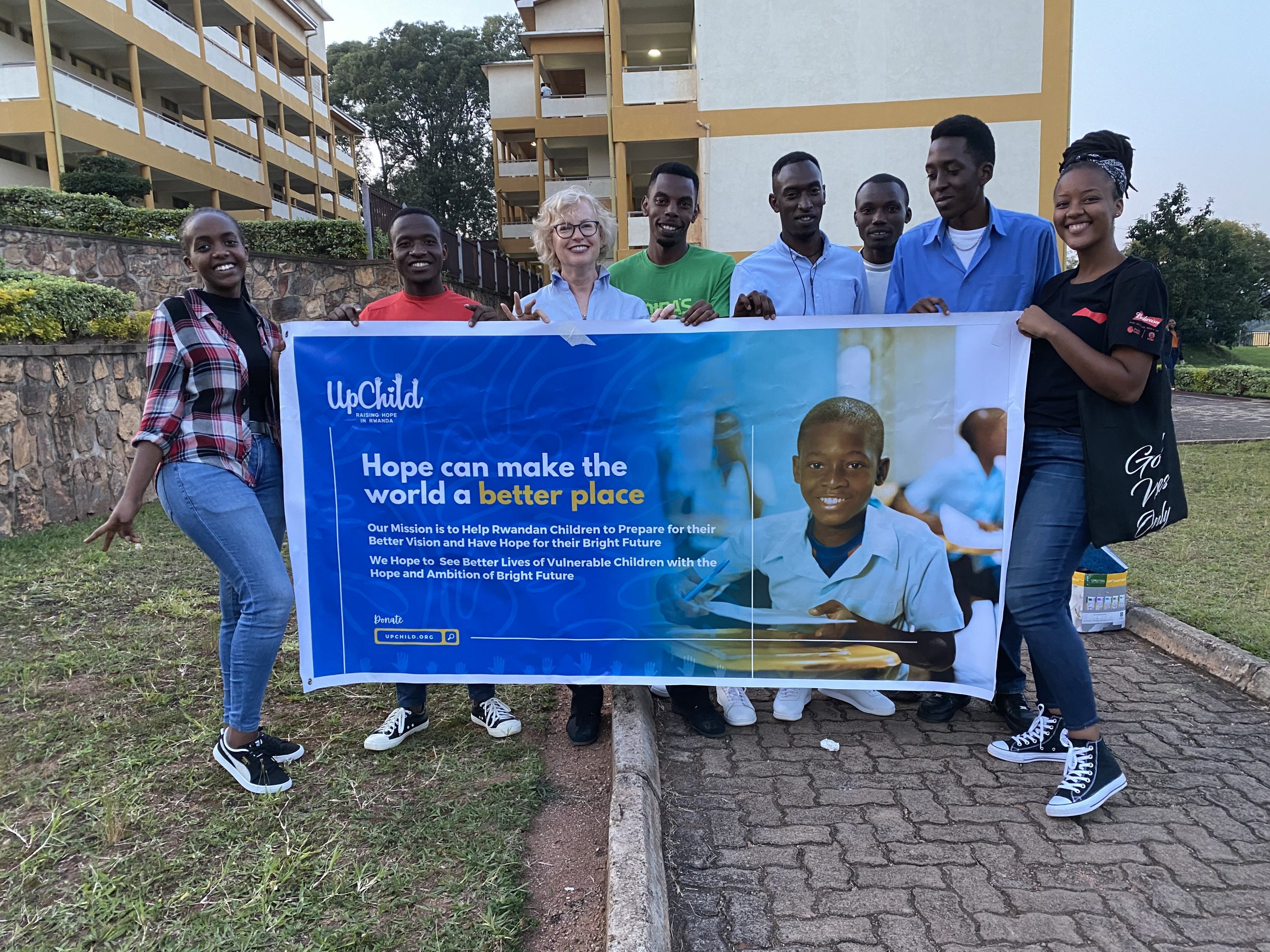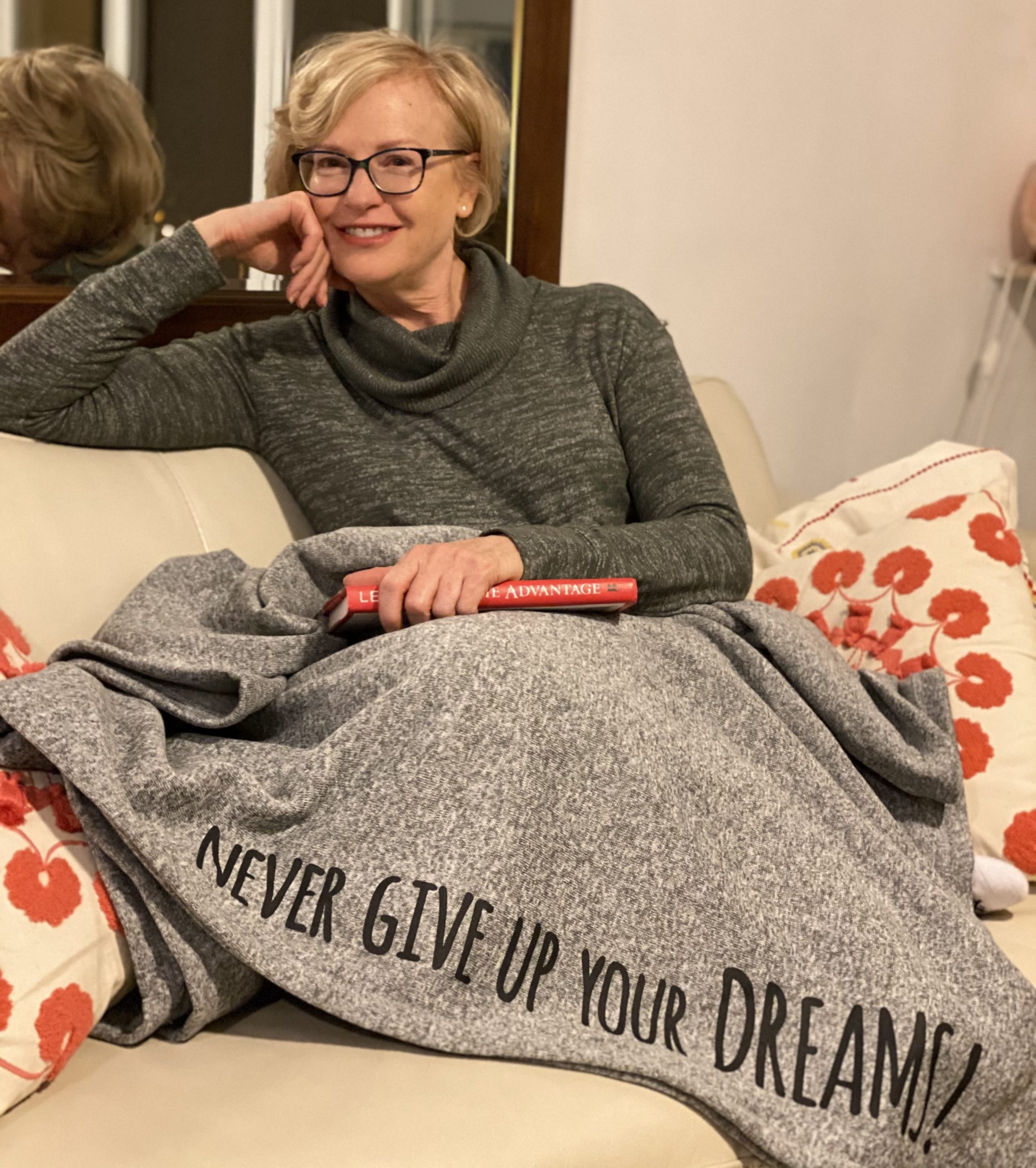Bringing Good Into the World
An interview with Dr. Leah Gniwesch
By Penina Taylor
How often in life do we see something wrong in the world and complain about it, but do nothing towards changing the situation? It’s a normal human reaction. Either we feel like there’s nothing that can be done about it, or there’s nothing that we, ourselves can do about it. But it’s the heroes in this world – or SHEroes who see the need for change and then do something about it.
Dr. Leah Gniwesch is one of those sheroes.
The daughter of a pulpit rabbi, with a PhD in clinical psychology, Leah has created something that is changing the face of the field of Life Coaching and making sure that those who become coaches are not only fully equipped to help their clients achieve their goals, but as it says in the medical dictum, to first do no harm.
Leah grew up in the American Midwest in a religious Jewish home, and like most young women in the Orthodox community went to Israel following high school. But as often happens, one year turned into four years, which turned into a lifetime. Like so many young adults do during their “gap year” in Israel, she fell in love with the country and went on to pursue her higher education there.
Seminary ignited her passion not only for learning but also for educating – she wanted to create a Judaism which was accessible and open minded, making it attractive to the next generation of Jewish young people. But, after studying in seminary for four years and achieving a teaching certificate in Jewish studies, Leah remembered that her lifelong goal was to be a psychologist. So, after seminary she went on to university.
She completed her undergraduate degree at Hebrew University and then went back to the US to pursue her master’s and doctorate degrees. She really wanted to be on the “cutting edge” of the field and she knew that New York was the place to do that. She ended up staying in the US much longer than she had planned, but she’s been back in Israel for 17 years now, that is her home.
Many people maintain the belief that life coaches are therapist wannabes who don’t want to actually do the work to get a degree in psychology. But for many that couldn’t be further from the truth. Dr. Leah has a doctorate in psychology, so why on earth did she become a life coach?
After achieving her doctorate and completing many years of research at Cornell and Columbia universities, she was fast-tracked for a prestigious career in clinical psychology. She loved research, but then she had an epiphany – she realized that she didn’t want to be a psychologist anymore.
And then as if it was meant to be, Leah came face to face with a life coach. She says at the time she didn’t even know what a life coach was.
Leah had become sick and ended up in the hospital for the first time in her life. On the recommendation of some friends, she decided to visit a spa to recuperate and get her strength back after being released. At the spa she had a wide variety of options for treatments – massages and nutrition sessions, and among the options was a coaching session with some guy with a PhD after his name. She thought that since she was trying all these different things, why not? After all, she’s open to anything that would aid in her recuperation and help her get back to her life. So, she signed up for a session with him and got so much out of it, she decided to sign up for a second session before she left.
Leah says that she had never experienced anything that powerful in her life. She had trained with the best – famous, published, psychologists and heads of institutes. And, she says, she had done really good therapy herself. Her whole orientation was to be a therapist and a researcher. And then this guy – who was a coach, something she had never heard of before – did two sessions with her and in just two sessions she says she was bowled over; she didn’t know what had happened to her. That was her first introduction to coaching.
Then many years later she moved her family to Florida to train with him. Before doing that, she had looked up programs in New York and New Jersey, which were in her area, but they all seemed superficial. She was looking for something more. So she contacted the coach and asked him to train her privately. After her training, she went back to New York and set up her practice as a Coach and never looked back. That was 20 years ago.
A few years after setting up her practice in New York, she returned home to Israel. While taking a course in marketing for women, in one of the sessions they did a SWOT analysis. SWOT stands for Strengths, Weaknesses, Opportunities and Threats. This process can be applied in many different ways for different organizations and individuals. But in the course, they were doing this SWOT analysis for their industry, and Leah was applying this to the coaching field. What did she write was the greatest threat to the coaching industry? “Badly trained coaches.” When she looked down at her paper, she had the sudden realization that she had to do something about this, because it’s destroying the industry and it’s wrecking the name of people like herself and her mentor, who are so well trained and doing such deep and sacred work. Three months later the Jerusalem Coaching Institute was launched.
The Institute only accepts a few students each semester because Leah believes very strongly not only in carefully screening potential students, but also because it’s a mentorship as much as a training program. It’s about building a relationship with those you are learning from, and that can’t be done on a large scale.
In addition to running the school, of course, Leah also sees clients in her private practice. When school is not in session, she keeps her hand in research at Hadassah Hospital in Jerusalem, through the Linda Joy Pollin Cardiovascular Wellness Center for Women where she helped design and implement an eight week group coaching program to help women change their lifestyle habits in order to prevent heart disease.
Considering how many life coaches there are today, it is natural to wonder if one can actually make a living as a life coach. Leah doesn’t have any statistics on how her former students are doing with their life coaching businesses, but she says, life coaching is a business just like any other business – you have to build it. However, the one thing it’s not is a get-rich-quick scheme. Leah talks about all the crazy advertisements out there offering short, cheap coaching courses that will have you earning six figures after only a 10 hour course. These schemes do a disservice to both the potential coach as well as their future clients.
Most coaches go into the field because they want to help people, they want to serve, which means that many coaches have difficulty “selling” themselves. But at the same time, coaching is a big business because in spite of the fact that it’s a difficult business model – coaching by definition is designed to be short-term, which means you are constantly working yourself out of a job so to speak, and yet, that’s the reason that it’s a billion dollar industry – when done well, it works better than most forms of therapy, and people like that. Most people don’t have the money or patience to be in therapy for 10 years, coming out at the other end of it maybe understanding why they are the way they are or why they feel the way they do, but still feeling that way. That’s often when people decide to try coaching instead. It can accomplish in a very short time what therapy often doesn’t even over a period of decades.
When you get results like that, people come.
Leah says that her happiest days at work are the days when her clients fire her. She’s so thrilled when her clients feel that they’ve gotten the results they were looking for. At the same time, it’s a hard business model. Whereas therapy can go on for years and even decades, coaching works so quickly that usually within 10 sessions the client is done – they’ve accomplished what they were looking to achieve.
Even though it’s a difficult business model, Leah is a stickler for only working with a client until they’ve gotten what they’ve come for. She tells her students that if they have even one more session with a client than is needed, they should return their money. Integrity in the field is an important part not only of what she does, but also what she imparts to her students.
Does that mean she makes less money because of it? Yes, she probably does, but Leah says she sleeps really well at night, and almost all her business is word of mouth because people see that she puts 150% into helping her clients as quickly as possible. They do great, and then they refer others to her.
But Leah doesn’t spend all her time building her business. She is an avid scuba diver and loves to travel. And this past summer Leah traveled to Rwanda to volunteer. She taught teachers, social workers and university students coaching and empowerment techniques to use with youth at risk.
What is Leah’s advice for Jewish women who see a need in the world but are unsure about their ability to address it? Leah’s motto is that God created each and every one of us with limitless potential in order to bring good into the world. She says that every single thing that she does every day from the moment she wakes up until the moment she goes to bed is (hopefully) in alignment with that. Because that is her core value.
Right now, where we are in history, in Leah’s opinion, we don’t have the luxury of people not living up to their God-given potential because there are so many things that are broken and need to be fixed, so many crises going on globally.
God created each and every one of us with limitless potential in order to bring good into the world.
– Dr. Leah Gniwesch
So her advice to the woman who sees a need in the world but isn’t sure she can do it, would be to start by evaluating what her core values are, what talents and gifts she possesses that she could use to accomplish the task. Then to visualize how life would be different once that project is in place. Finally, to figure out who the people are in your life that can support you in your journey, and in fixing what needs to be fixed or creating what needs to be created. Leah firmly believes in the power of community.
Americans tend to be focused on being independent – doing things on your own. But we are created to be in community – we need each other. We start with our families and move outward. So, it’s important for every woman to use the power of community to create a support network of those who will help her as she builds her dream.
Additionally, Leah says we need to learn to shut out the outside voices and make time on a regular basis to listen to ourselves. That can be through meditation or journaling or just sitting quietly and thinking about things. It’s really important because as women we are socialized to be “others” directed. There’s so much social pressure to conform – especially in religious society – that we battle who we are versus who we are being told we are supposed to be, what we want to do versus what we are supposed to do. So, learn to listen to your own voice – even if you do take into consideration what those closest to you say, learn to listen to yourself first.
The Jerusalem Coaching Institute’s website is www.jerusalemcoachinginstitute.com and Leah can be reached by email at drleah.lifecoaching@gmail.com or by phone at +972-2563-1481 (Israel) or +1 212-362-7510 (US).







